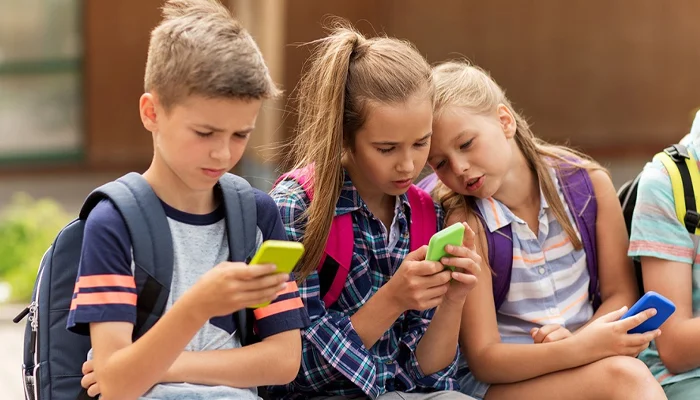Australian lawmakers passed landmark rules on Thursday to ban under-16s from social media, enacting one of the world’s toughest crackdowns on popular sites like Facebook, Instagram, and X.
The bill, which has gained bipartisan support, now requires social media companies to take “reasonable steps” to prevent young teens from creating accounts.
The companies, which could face fines up to Aus$50 million (US$32.5 million) for non-compliance, have criticized the laws as “vague,” “problematic,” and “rushed.”
The legislation passed the lower chamber of parliament on Wednesday and the Senate late Thursday evening, making it nearly certain to become law.
Centre-left Prime Minister Anthony Albanese, eyeing an election early next year, has enthusiastically championed the new rules and rallied Australian parents to support them.
Ahead of the vote, he described social media as “a platform for peer pressure, a driver of anxiety, a vehicle for scammers, and, worst of all, a tool for online predators.”
He stated that he wanted young Australians “off their phones and onto the footy and cricket field, the tennis and netball courts, in the swimming pool.”
I’ll find a way
Young Australians like 12-year-old Angus Lydom are not impressed.
“I’d like to keep using it. It’ll feel weird not to have it and not be able to talk to all my friends at home,” he told AFP.
Many likely will try to find ways around the ban.
“I’ll find a way. And so will all my other friends,” Lydom said.
Similarly, 11-year-old Elsie Arkinstall believes social media still has a place, especially for children who want to watch tutorials on baking or art, many of which appear on social media.
“Kids and teens should be able to explore those techniques because you can’t learn all those things from books,” she added.
On paper, the ban is one of the strictest in the world.
However, the current legislation provides almost no details on how the rules will be enforced, leading experts to worry that it will become an unenforceable, symbolic law.
Regulators will need at least 12 months to work out the details before the ban takes effect.
Some companies, such as WhatsApp and YouTube, will likely receive exemptions, as teenagers may need to use these platforms for recreation, schoolwork, or other reasons.
Late amendments were introduced to ensure that government-issued digital IDs cannot be used for age verification.
Australia is leading the way
Social media expert Susan Grantham told AFP that digital literacy programs, which teach children to think “critically” about what they see online, should be adopted, similar to a model used in Finland.
Other countries will closely monitor the legislation, with many considering whether to implement similar bans.
Lawmakers from Spain to Florida have proposed social media bans for young teens, though none of these measures have been implemented yet.
Since 2021, China has restricted access for minors, limiting under-14s to no more than 40 minutes a day on Douyin, the Chinese version of TikTok.
China also limits online gaming time for children.

